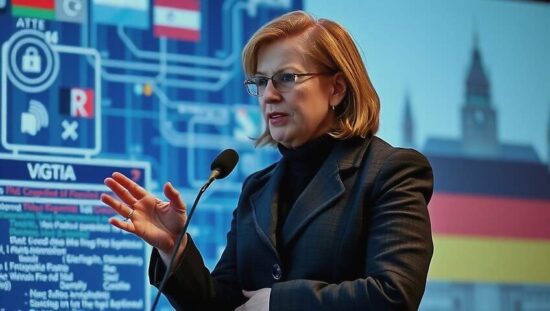German Cybersecurity Chief Warns of Russian Threat, Emphasizes EU’s Role in Combating Disinformation
The President of the German Federal Office for Information Security (BSI), Claudia Plattner, has identified Russia as the most pressing threat to Germany’s cybersecurity, citing the country’s aggressive pursuit of geopolitical goals through espionage, sabotage and the empowerment of cybercriminals. In an interview with the Funke-Mediengruppe, Plattner stated that “from Russia, the most immediate and pressing threat to Germany’s cybersecurity comes at the moment.”
Plattner also highlighted the use of artificial intelligence in pro-Russian disinformation campaigns, where fake images and videos are created or manipulated to influence public opinion in Germany. She warned that, in the future, states like Russia will likely rely more heavily on AI in their disinformation efforts to manipulate debates in Germany.
Notwithstanding the Russian threat, Plattner also emphasized the presence of other cyber threats, including China’s focus on long-term espionage and North Korea’s cybercriminal activities, which pose a risk to Germany’s cybersecurity.
In the fight against disinformation and fake news, Plattner called for a stronger use of digital watermarks and security seals to authenticate information. She suggested that, for instance, the German Chancellor’s speeches or the Foreign Minister’s videos should be more frequently marked with digital signatures to ensure their authenticity. “This would make information verifiable for everyone” she said.
The BSI President also emphasized the need for the European Union to take a more active role in promoting the use of these digital security measures among platform operators. “The European Union is called upon to encourage the benefits of these digital seals at the operators of the platforms” she said, “and we are happy to help.





